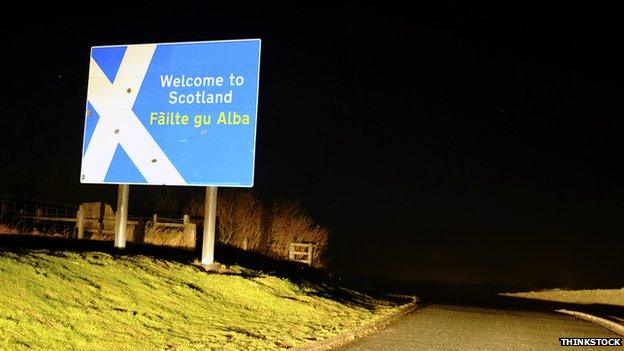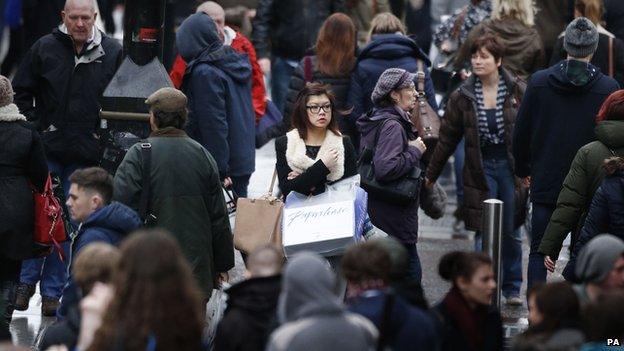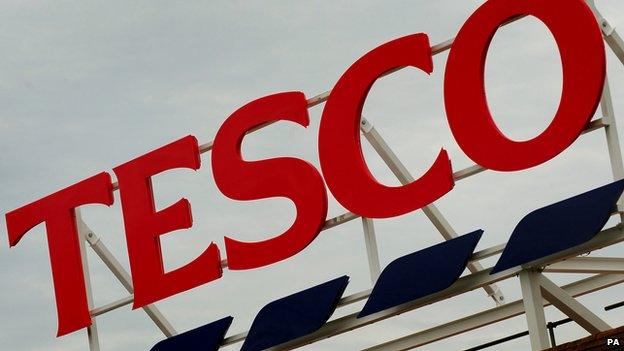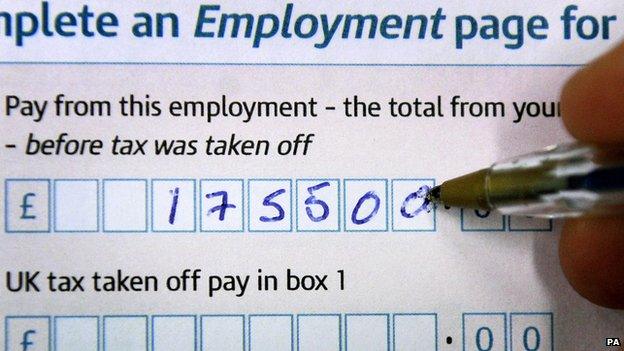Scottish independence: What is it like to live on a border?
- Published

What would life be like if there was an international border between Scotland and England?
It is one of the many issues to be explored before Scotland goes to the polls in September's independence referendum.
To find out how border economies work, BBC Scotland's economics correspondent Colletta Smith travelled to the UK's only international land border, between Northern Ireland and the Republic of Ireland.
Rather than exploring the big macro-economic implications, she looked at the simple things - how people work, live and shop.
Watch this week's Reporting Scotland for more reports from the Irish border.

Shopping

The first you notice about the border between Northern Ireland and the Republic of Ireland is that there is no border to see. The only way you can tell which side you are on is whether the speed limits are in miles or kilometres per hour.
But, the systems and prices are different on each side so there are bargains to be had by canny shoppers. Many from the Republic travel north for groceries, while those in Northern Ireland cross the border for petrol, as there is a lower fuel tax rate in the south.
In 2009, the ASDA store in Strabane, Northern Ireland, was taking around £2m a week, making it the sixth most profitable ASDA in the world. Much of that was from cross-border trade.
But the tide of shoppers can change direction, depending on the strength of the pound against the euro and what VAT and duty levels the chancellor announces in the budget.

Companies

For businesses there are hurdles to be negotiated: different currencies, regulations, and tax systems.
But, lots of companies still see the cost-saving benefits of operating from one headquarters to both sides of the border. Tesco and Coca Cola are just a couple of the big companies which supply the whole island from one main depot.
But Philip Gilliand from Londonderry Chamber of Commerce says it's harder for smaller companies.
"It's mainly for historical reasons, but there are still two separate markets with some interaction between them rather than one fluid market," he adds.
However, in 2010 £2.5bn in goods crossed the border.

Workers

For those who live in Newry, Enniskillen and Londonderry, or Letterkenny, Dundalk, and Monaghan, crossing the border between the UK and Ireland is part of daily life. For many people the day begins on one side and then they cross to the other for work.
Although very straightforward journey, there are tax implications. Each worker must pay tax in the country they earn most of their money, and then file a tax return in the country they live in to declare the income earned abroad.
It does cause headaches for many when the tax deadline looms. They are referred to as "frontier workers" by HMRC in the UK, which perhaps sounds a little "wild west".
For many it's simply a case of working in the town closest to their home - it just happens to be in another country.